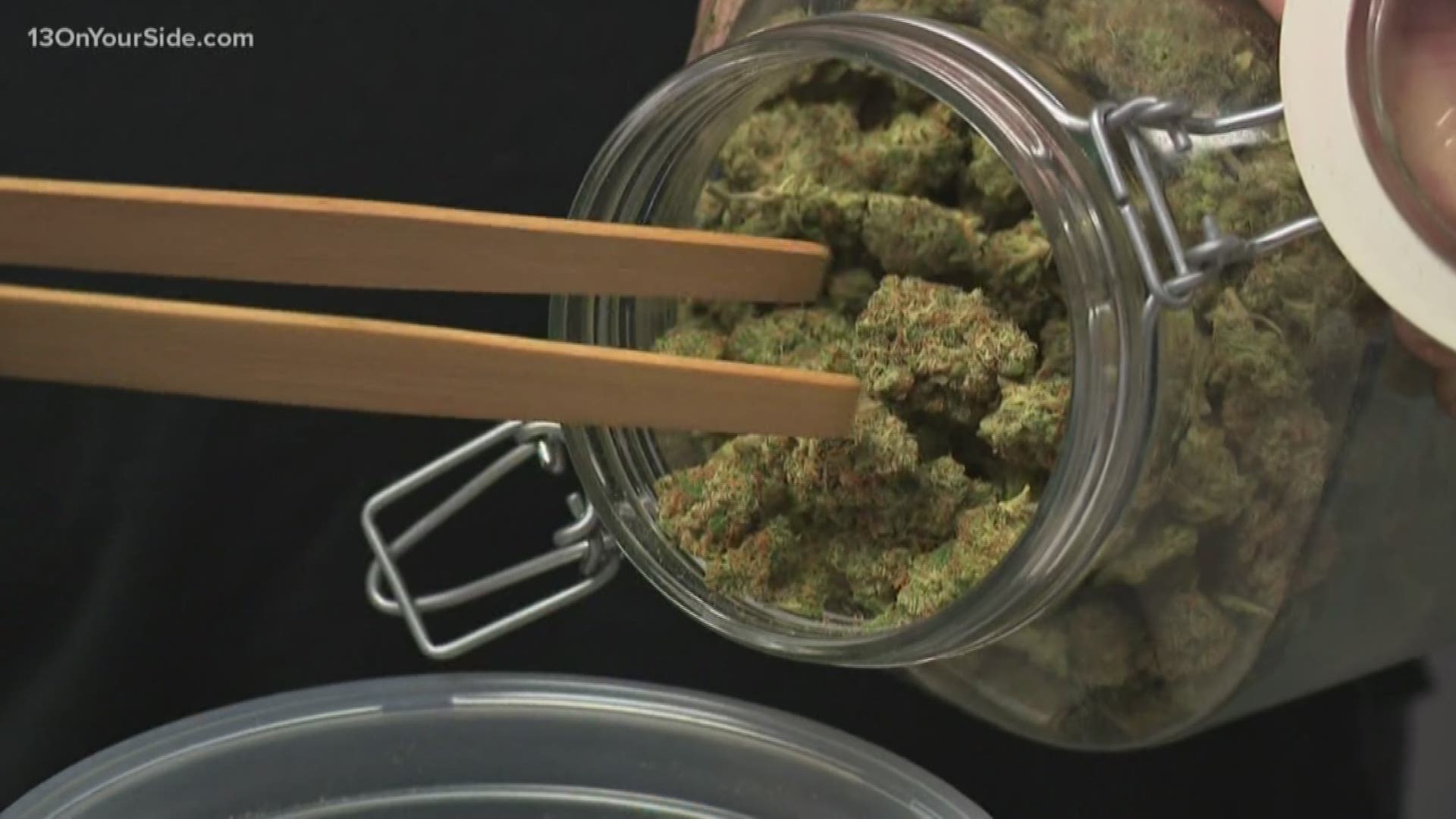GRAND RAPIDS, Mich. - The Marijuana Regulatory Agency (MRA) has issued emergency administrative rules for the purpose of implementing the Michigan Regulation and Taxation of Marijuana Act (MRTMA).
Gov. Gretchen Whitmer signed the emergency rules to enable the MRA to fully implement the marijuana proposal that Michigan voters approved in 2018.
“The release of the rules today provides local municipalities and prospective licensees with the information they need to decide how they want to participate in this new industry,” said MRA Executive Director Andrew Brisbo. “Since we plan to start taking business applications November 1, stakeholders will have four months to evaluate these rules and make their decisions. These rules set Michigan’s marijuana industry on a path for success while ensuring safety for marijuana consumers.”
The emergency rules are effective today and will remain in effect for six months.
In addition to the license types required in MRTMA, the emergency rules create the following additional license types:
- Marijuana Event Organizer – allows the license holder to apply for Temporary Marijuana Event licenses from the MRA.
- Temporary Marijuana Event – this license allows a Marijuana Event Organizer to run an event – which has been approved by the local municipality – where the onsite sale or consumption of marijuana products, or both, are authorized at a specific location for a limited time. Licensed Retailers and Microbusinesses may participate. The Marijuana Event Organizer is required to hire security and ensure that all rules and requirements for onsite consumption of marijuana products are followed.
- Designated Consumption Establishment – allows the license holder, with local approval, to operate a commercial space that is licensed by the MRA and authorized to permit adults 21 years of age and older to consume marijuana and marijuana products on premises. A Designated Consumption Establishment license does not allow for sales or distribution of marijuana or marijuana product, unless the license holder also possesses a Retailer or Microbusiness license.
- Excess Marijuana Grower – allows a licensee who already holds five adult-use Class C Grower licenses to expand their allowable marijuana plant count.
To ensure marijuana product is available for individuals 21 years of age or older, the MRA may authorize grower, processor, and retailer equivalent licenses to transfer marijuana product from their medical marijuana inventory to their adult-use inventory. The MRA will publish a specific start date, end date, and other requirements for the transfer of marijuana product between equivalent licenses.
Adult-Use Licensing Two-Step Application Process
The application process for adult-use marijuana establishment licenses will continue to follow the two-step process that the MRA has been using for the processing of medical marijuana facility operator licenses. The two-step process will allow applicants to begin the application process while still seeking a location for the adult-use marijuana establishment, if they choose to do so.
The first step, pre-qualification, allows applicants to determine if they have state approval before they invest in property, buildings, or equipment. Some municipalities may require this approval before local support is given.
The second step, license application, will allow applicants to indicate which type of adult-use marijuana establishment license is being sought and must include plans for a marijuana establishment located in a municipality that does not have an ordinance in place which would preclude the business.
Since the adult-use marijuana law requires the MRA to make a licensing decision within 90 days of receiving a complete application, applicants are encouraged to utilize the two-step process to help avoid a default denial occurring at the 90-day mark.
Applicants will have the option of submitting step one and step two materials at the same time and may submit an online or a paper form application to the MRA; both the paper and online application will require the same documentation and information.
Other Highlights
- Growers and Processors may engage in research and development.
- Growers, Processors, Retailers, and Microbusinesses may offer tested internal product samples for their employees to consume, off-site, to ensure the quality and/or potency of the products.
- Growers and Processors may provide trade samples of marijuana and marijuana products to other Processors or Retailers to help determine whether they want to purchase the product.
- A licensee – who holds two or more Processor licenses or two or more Retailer licenses – with common ownership at different establishments may transfer marijuana product inventory between the Processor or Retailer establishments.
- Microbusinesses may not operate at multiple locations and must operate the corresponding areas of their Microbusiness in compliance with the operation requirements of a Retailer, a Grower, and a Processor.
- The MRA’s Social Equity Plan will (1) promote and encourage participation in the marijuana industry by people from communities that have been disproportionately impacted by marijuana prohibition and enforcement and (2) positively impact those communities.
- A Retailer is not required to retain information from customers other than the following: method and amount of payment, date/time of sale, product quantity, and other product descriptors.
►Make it easy to keep up to date with more stories like this. Download the 13 ON YOUR SIDE app now.
Have a news tip? Email news@13onyourside.com, visit our Facebook page or Twitter.

